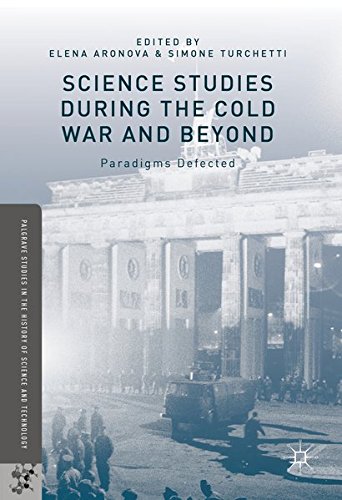

Most ebook files are in PDF format, so you can easily read them using various software such as Foxit Reader or directly on the Google Chrome browser.
Some ebook files are released by publishers in other formats such as .awz, .mobi, .epub, .fb2, etc. You may need to install specific software to read these formats on mobile/PC, such as Calibre.
Please read the tutorial at this link: https://ebookbell.com/faq
We offer FREE conversion to the popular formats you request; however, this may take some time. Therefore, right after payment, please email us, and we will try to provide the service as quickly as possible.
For some exceptional file formats or broken links (if any), please refrain from opening any disputes. Instead, email us first, and we will try to assist within a maximum of 6 hours.
EbookBell Team

4.0
16 reviewsThis book recounts how during the Cold War the study of science moved to the centre of academic through the creation of the new discipline of science studies. In this way the volume charts the importance of these studies for the trajectory of Cold War nations through the elaboration of new national science policies and the transnational dialogue, even across the Iron Curtain, between key scholars involved in shaping their trajectory. By examining how a new group of intellectuals was mobilized by state administrators to convincingly set up a discipline deemed to have major repercussions on the advancement of science in developed and undeveloped nations. Secondly, by putting the study of science at the centre of the dialogue (as well as the confrontation) between nations and Cold War blocs. The volume thus shows how an often considered arcane field of enquiring had in fact major implications for the understanding and fostering of Cold War science.